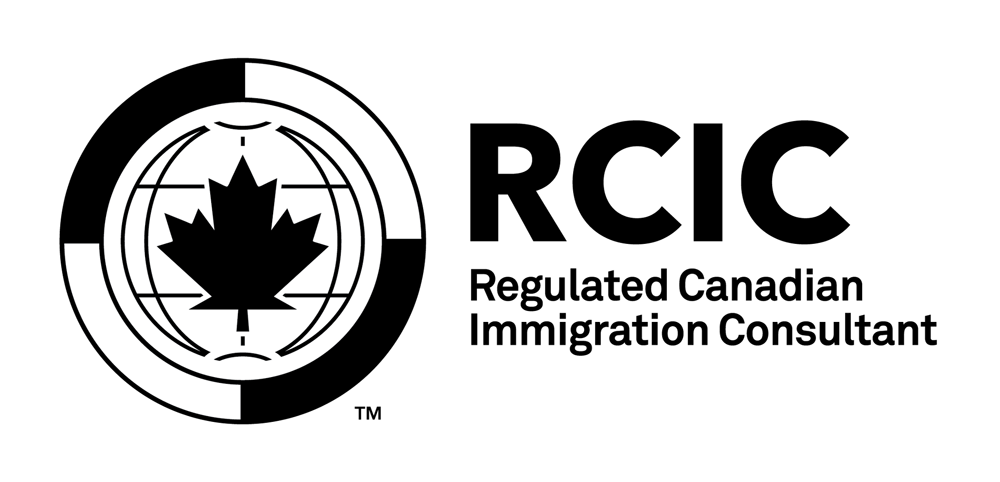French Language Proficiency and Express Entry: A Complete Guide

Why French and English Matter for Canada PR
If you have French language skills as well as English language skills, Canada may be a great place to build your future, as the French proficiency factor is significant in various aspects in Canadian immigration and for French speakers looking to build a future life here.
Canada values people who have language skills and abilities in both official languages. These language abilities can help you to be eligible for Canadian Permanent Residence (PR), especially through Express Entry French category, depending on your English and French language test results.
The Canadian government plans to welcome almost 30,000 French-speaking newcomers in 2025, and this number is expected to grow to 31,500 by 2027 with the ongoing Francophone immigration programs.
The Official Languages Action Plan is investing $137.2 million over five years to support and promote Francophone immigration to Canada.
French speaking candidates generally earn an additional 62 points by improving their French language skills to a CLB 7, especially when combined with other factors like education, work experience, and English ability.
Canada Has Two Official Languages
The two official languages are English and French. French is mainly spoken in Quebec but also in many other parts of of the country.
To support French-speaking communities, Canada has specific categories of permanent residence immigration programs for French-speaking candidates with bilingual abilities with a certain level of French proficiency.
What Is the Express Entry System in Canadian Immigration?
Canada uses the Express Entry system to issue invitations to skilled workers to apply for permanent residence, with specific identified economic goals in mind.
Express Entry Canada PR includes three programs (click on each to learn about the eligibility details):
- Federal Skilled Worker Program (FSW)
- Canadian Experience Class Program (CEC)
- Federal Skilled Trades Program (FST)
If you meet the eligibility criteria of one of these programs , you can enter the Express Entry pool.
The Comprehensive Ranking System (CRS) is a points-based system used by the Canadian government to rank immigration candidates based on their qualifications and skills.
The maximum comprehensive ranking system CRS score a candidate can get is 1,200 points. Immigration, Refugee and Citizenship Canada invites top ranked candidates to apply for Canada PR in each invitation round.
Category-Based Selection and Express Entry French Language Proficiency Based Selection
There are different types of Express Entry draws within the Express Entry program.
In addition to rounds of general draws, Canada holds special category-based draws and sometimes even program specific rounds, which focus on specific skills, such as the Express Entry French language proficiency draws, and are evaluated based on the comprehensive ranking system CRS .
Express Entry draw rounds focused on French proficiency often have lower CRS cut-off scores than regular draws, making it easier for candidates that speak French to qualify for Permanent Residence in Canada.
With strong French language skills, those who meet the French proficiency requirements and have the appropriate NCLC level 7 (Les Niveaux de compétence linguistique canadiens) have a better chance of becoming invited under the French language proficiency draws in the Express Entry system and receive invitations to apply for PR, even if their total CRS score is lower that that required for general draws.
Real Example: What is the CRS score in Express Entry Draws for French category?
On March 21, 2025, in one of the most recent round of draws, Canada issued 7,500 invitations to candidates under the French language proficiency draws.
The minimum score required was 379 for candidates with eligible French skills.
This is much lower than the recent round of CRS score in the Canadian Experience Class program (CEC) Express Entry draw, where the lowest ranked candidate that received an invitation in the most recent draw has a pass mark minimum points of 549.
What are the French Language Proficiency Express Entry Requirements?
To qualify as a candidate for the French language proficiency category, you must meet the following eligibility criteria:
- Be eligible for one of the three Express Entry programs
- Score at least CLB 7 in French in all four skills: speaking, listening, reading, and writing
- Have
at least CLB 5 in English (higher scores are better for your CRS)
What Are the Accepted French Tests?
You must take a test before submitting your profile to prove your NCLC level.
To demonstrate your French proficiency, you can take either:
- TEF Canada (Test d’évaluation de français)
- TCF Canada (Test de connaissance du français)
Both TEF Canada and TCF Canada test check your skills in:
- Speaking ability
- Listening comprehension
- Reading comprehension
- Written French
Your French skills scores are converted from NCLC level (Les Niveaux de compétence linguistique canadiens) to CLB levels. A CLB score of 7 in all 4 aspects is needed to qualify for the Express Entry Francophone stream.
Accepted English Tests for Express Entry
To demonstrate your language proficiency in English, you can take:
- IELTS (International English Language Testing System) General Training
- CELPIP General
- PTE Pearson Test of English Core
The academic versions of these tests are not accepted for immigration.
Minimum Language Requirements for French Speaking Skilled Workers under the French Language Proficiency Category
You must score:
- CLB 7 or higher in French in all four abilities
- CLB 5 or higher in English (for bonus points and eligibility)
What Is the CLB?
CLB stands for Canadian Language Benchmark.
It is a system used in Canada to describe language ability levels.
You must reach certain CLB levels to qualify for general Express Entry draws and category-based draws.
Step-by-Step: How to Apply Through Express Entry for Canadian Permanent Residency
Let’s break down the Express Entry process.
Step 1: Check Your Eligibility as an Express Entry Candidate under Federal Skilled Worker Program/ Canadian Experience Class/ Federal Skilled Trade
You must first see if you meet the criteria to qualify as the principal applicant for one of the three programs in order to enter the Express Entry pool as an Express Entry Candidate.
Note that Canadian Experience Class has seen the most draws in the recent years, as Immigration and Citizenship Canada has been prioritizing candidates that are already inside the country.
Federal Skilled Worker Program (FSW)
- At least one year of full-time (or equivalent) skilled work experience in the last ten years
- CLB 7 in either English or French
- Secondary school education (minimum)
- Have a minimum score of 67 out of 100 on the FSW points grid
Canadian Experience Class Program (CEC)
- At least one year of skilled work experience in Canada in the last three years
- CLB 7 (if your job is TEER 0 or 1); CLB 5 (if TEER 2 or 3)
- No minimum education required
Federal Skilled Trades Program (FST)
- Two years of full-time experience in a skilled trade in the last five years
- CLB 5 (speaking and listening), CLB 4 (reading and writing)
- Valid job offer or trade certification in Canada
- No minimum education required
Step 2: Take Your Language Tests
Take both English and French tests if you want to qualify for the bilingual points or the French-language category draw as a candidate.
Make sure the test covers all four abilities - listening, speaking, writing and reading.
Note that the test results are valid for 2 years.
Step 3: Get Your Education Assessed (ECA)
If you completed your education outside Canada, you’ll need an Educational Credential Assessment (ECA). This report tells IRCC what your foreign degree or diploma is equal to in Canada. The ECA is required for getting point score for your education. You need to get an ECA for immigration purposes.
You can get your ECA from approved organizations like:
- WES (World Education Services)
- ICES (International Credential Evaluation Service)
- IQAS (International Qualifications Assessment Service)
- CES(Comparative Education Service)
- ICAS(International Credential Assessment Service of Canada)
An ECA report is usually valid for 5 years.
Step 4: Create Your Express Entry Profile under the Comprehensive Ranking System CRS
Go to the IRCC website and submit your Express Entry profile to participate in draws for invitations to apply for PR.
You’ll include:
- Language test scores
- Education history
- Work experience
- Personal details
Once you start, you only have 60 days to complete and submit your Express Entry profile. Otherwise, you’ll have to start again.
Once created, your profile should be kept up to date to reflect any changes in your circumstances, for example, marital status, employment changes, language results, etc.
Your profile will be valid for 1 year, or until your language test or educational assessments expire. If necessary, you can create a new profile when the old one expires.
Step 5: Get Your CRS Point Score
Your profile will be given a CRS point score based on:
- Age
- Education
- Work experience
- Language skills
- Job offers or Canadian connections (if any)
If you have an accompanying spouse or common-law partner, you may receive points for their factors as well.
You can use the CRS calculator to estimate your score.
Step 6: Wait for a Draw and an Invitation
IRCC holds Express Entry draws regularly.
If your profile matches the requirements for a French language proficiency category draw, you may receive an Invitation to Apply (ITA) under this category if your CRS point score is sufficient for the specific round. There is no need to register for the category separately.
Step 7: Submit Your PR Application
If you receive an ITA, you must submit your electronic Application for PR (eAPR) within 60 days.
You will need:
- Medical exam results
- Police certificates
- Proof of funds
- Employment and education documents
- Language test results
Step 8: Get Approved and Move to Canada
If your application is approved, you will receive a Confirmation of Permanent Residence (COPR).
- If you are outside Canada, you will receive your COPR and a permanent resident visa (if needed). You must enter Canada before the expiry date on your documents to officially become a permanent resident. After arriving, your PR card will be mailed to your Canadian address.
- If you are already inside Canada, you will be asked to complete the landing process either online through the PR Confirmation Portal or in person if needed. Once confirmed, your PR card will be sent to your Canadian address.
The PR card is your official proof of permanent resident status in Canada and is needed for travel outside and back into the country.
Once everything is finalized, you can begin your new life as a permanent resident of Canada
French Language Proficiency Draws - Speaking French Can Give You an Advantage
Category-based draws under the EE program for French speakers are becoming more frequent.
Because the CRS points cutoffs are lower, if you speak French, you can qualify for Canada PR by becoming one of the top ranking candidates in the French draw, even if your overall point score isn't very high — as long as your French ability is strong.
French Helps Beyond Immigration
French speaking skilled workers don’t just benefit from getting more immigration points; general French language skills also greatly benefits French speaking immigrants in various sectors as it is considered an important adaptability factor in your life in Canada.
French speakers can also utilize their French speaking skills:
- Getting a job in Canada with your second language skills
- Communicating with more people
- Feeling more confident in daily life
Bilingual Candidates Are in Demand
Francophone immigration programs are in place because Canada wants more people who speak both French and English.
Bilingual workers are needed in and out of Francophone communities, especially in:
- Government jobs
- Customer service
- Health care
- Education
- Public service roles
At The Way Immigration, we are experienced in various permanent residency programs including the Express Entry, provincial nominee program, and sponsorship of family members. If you are a candidate that can speak French as a second language, we can help you assess your eligibly, advise on which French language test to take, and guide you through your journey to Canadian permanent residency. Call us today to book a consultation.
Frances Wipf, RCIC, is recognized globally as an expert in Canadian immigration matters. She is licensed by the CICC to provide legal representation and strategic immigration insights. In practice since 2008, Fran has successfully guided thousands of clients to achieve their Canadian immigration dreams through a combination of realistic assessment, technical excellence, and honest advice.











